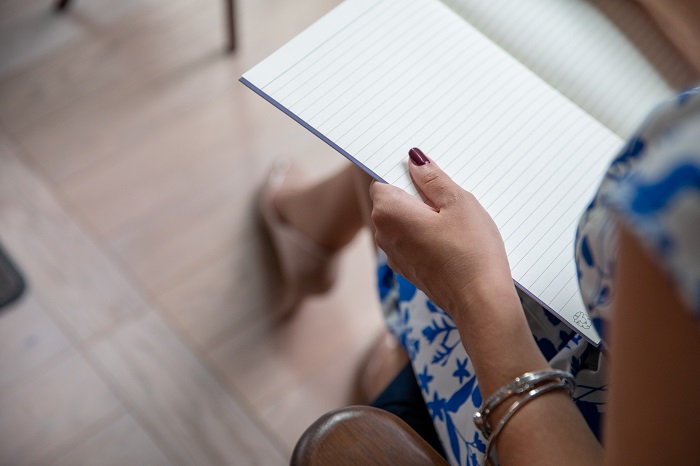For those who don’t know what a good careers guidance session with a young person looks like, it’ll often start with some rapport building and questioning. Good guidance isn’t just about ‘telling’ it’s about asking good questions. And that includes questions around how school is going, what is working well, what isn’t, the subjects they love and those they loathe. It’s all about getting an understanding of that person’s motivators and interests and then how that might link to the future.
Like many other advisers, I’m finding this initial part of the conversation more and more frequently a highly volatile and depressing conversation. Put simply; we are breaking our young people. For many, school isn’t the right fit with a ‘one size fits all’ government approach and for others, the pandemic has of course traumatized them. This was put into even more stark focus for me when I was recently asked if I knew of any good tips or resources to help a potential client deal with the intense pressures of exams, which he is currently facing. He is in Year 6. That is primary school.
The last time we’d talked before this discussion, he had told me he was a bit sad that social distancing meant he couldn’t sit on the benches in assembly…this was something he’d been really looking forward to as a ‘grown up’ privilege bestowed only on Year 6s. And now we’re talking about dealing with a mental health issue of anxiety, brought on by worry over exams with the added backdrop pressure of a year in which he feels he hasn’t been taught anything. He’s a wonderful kind boy, barely in double digits with his age and with an amazing talent for art, but right now he’s just worried about how he gets through an exam. Luckily, he has amazing parents who have been able to talk to him about what really matters in life and that SATs are really about measuring the school not the child, but I’m sure he still doesn’t feel great right now.
So, if you have a child in the same boat, other than swooping in and changing our whole education system (if only!), what else can you do to support your children and teenagers who are facing exam anxiety?
Let’s start by looking at before the exam happens. There are some general things which you can help your child do, to ensure they are as prepared and comfortable as possible.
1) Study – obviously the more comfortable they are with the content, the more confident they will feel. Make sure however that study is happening in short ‘power chunks’, rather than overwhelming hours of study. Also talk to them about how they learn best. In school we expect them to sit and write, so they think this is how best to revise. Often it’s not. There are lots of other ways from key cards to drawing what they’ve learnt, talking it through and even walking it through, whatever works for them.
2) Keeping them healthy – it’s very tempting to reach for that pack of sweets but oily fish, fruit and lots of water and exercise will all help their brains and bodies. As will making sure they engage in hobbies to achieve a good balance and have regular breaks and good sleep.
3) It’s good to normalize exam nerves but make sure they still know that their feelings are being heard and understood, not dismissed. Try positive affirmations and encourage them to talk kindly to themselves. Also try working on re-framing their more negative comments ‘I’m going to fail because we’ve not been taught anything because of the pandemic’ could be re-framed as ‘this has been a tough year and I’ve done my best to study from home and now I need to do my best in the exam, that’s all that matters’.
4) Find out as much information about the exam as you can – when, where, what, who (students taking it and teachers being there). Plan for this and any unexpected things, as well as discussing what happens after the exam. Discourage talking to other students before or after the exam, remind them they may have put a different answer but that doesn’t mean they’re right and you’re not. Remind them of social media if they use it – there is a difference between Instagram and reality, and the same can be said for this situation.
5) Plan something nice to do after the exam is over, something nice to look forward to and reinforce the message that being brave and doing the exam is the important bit, not what grade they get.
Ways to reduce exam stress before the exam takes place:
Practice the paper, practice the experience
Practice is key. Going through past papers will not only help your child test their knowledge, it will also help them understand how questions are worded and what they’re asking of them. Crucially, it can also be used as a great way to get that exam environment a more familiar and less scary one. Things like making sure the paper isn’t being done in too relaxed an environment, setting it to a time, even asking your child what is it that really unnerves them in particular and set that up for your ‘exam’ environment. They hate the ticking clock? Make sure you have one. Hate the walking into the room bit? Then role play that too.
But of course, this isn’t meant to be about breaking them. After they have practiced the exam, talk through what was challenging and brainstorm ideas of how they can make these things less scary. Maybe make a game of it, see how long you can stand on one leg whilst waiting to enter the room and agree a funny Tik-Tok dance you can do which they can think of every time they focus on the tick tock of the clock. The more you practice, the less scary these things will become.
Keep their stress levels low
Keep encouraging your child to relax, as well as study so when the exam stress starts, it’s starting from a place of relaxation and has further to ‘go’ rather than when stress builds on a mountain of existing stress.
Muscle/relaxation techniques can be used before and even during exams. This article from Bemidji State University explains more.
No time for a full-scale muscle review? Simply holding your arms above your head and stretching left to right, is a great stress releaser and mood booster and takes only seconds. Or push your shoulders back and role your head from side to side. Another quick activity which can also be done during an exam, as well as before it.
But what about strategies for when they’re in that all important exam, if things are not going to plan?
Dealing with mind blanks
Part of your discussions can be about how to overcome mind blanks – the most common cause of stress in an exam. Looking up, rather than down, helps a student re-focus rather than just staring at the ‘enemy’ exam paper. Looking up has also been shown to improve memory recall.
Sometimes our mind goes blank however, not because we don’t know the content, we just get hung up on the specific question and how we should phrase the answer. So instead of trying to write full sentences, sometimes a quick spider diagram or even drawing, to ‘brain dump’, is a good way to get started.
Dealing with anxiety during an exam
However, mind blanks in exams are often more about anxiety, than they are about knowing or remembering the subject matter. When we suffer from anxiety, the neurological process in our brains goes into ‘fight or flight’ mode. To move on from this, the cycle needs to be broken. Sometimes, distraction tactics may help, like the EFT tapping technique, which is an alternative acupressure technique (watch this video which takes you through a practical activity of how to do this). Or other tactics such as focusing on your breathing, has both the psychological effect of being distracting, as well as physiological. Here are a number of breathing exercises:
The “4-7-8” technique: In this technique, you breathe in for 4 seconds, hold your breath for 7 seconds, and then exhale for 8 seconds. This technique has been recommended by many doctors because it “demands that your focus be on your breathing and nothing else” . Instead of focusing on your anxiety, the 4-7-8 method allows you to clear your mind and calm your brain.
The Balloon Technique: This method may be especially effective if you prefer visuals to counting. Imagine a balloon every time you breathe in and out. The bigger and longer your in-breath, the larger your balloon inflates. Then, imagine the balloon completely deflating when you breathe out. This image of a balloon can distract your mind from thinking of the core thing that is making you anxious at the time.
Focus On Your Breathing method: it’s as simple as that. There is no need to count the number of breaths your take, but rather just notice your patterns of breath. How much air do you take in consistently? Do you take long, deep breaths or short, rapid ones? Being conscious and aware of the air you are inhaling and exhaling will allow you to feel more calm before and during the test you are taking.
The Test Mode technique: First, take a deep break after you read each question. Then, take a deep breath each time you submit an answer. Finally, take one more deep breath whenever you get stuck. Taking this many deep breaths throughout a test can clear your mind and help you be able to focus more intently.
Some final resources:
But don’t just take my word for it, here is a great document from the Young Minds website with advice from young people themselves about how to cope with exam stress
Or if you’d like more detail, than you may want to go through this session on dealing with exam stress, written by the Samaritans (yes, the Samaritans – that’s how far we’re pushing our young people).
Whatever else, please remember to treat your children and yourselves with love. Exam success is not the sole path to happy and fulfilling lives. And remember, there is no such thing as failure; you either win or learn.






Leave A Comment